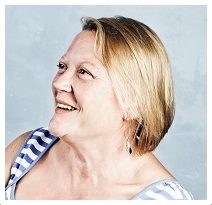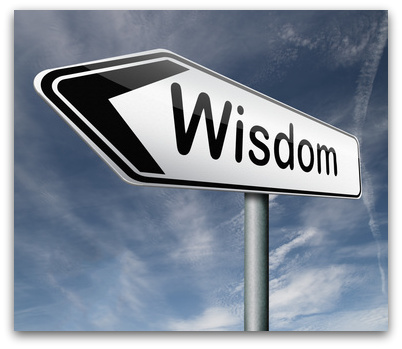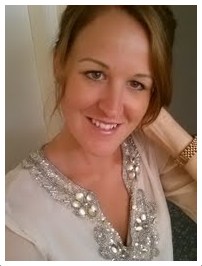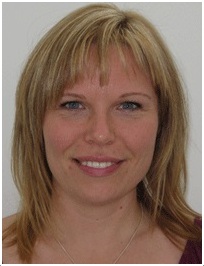Secrets of Confident People
Today coach, M.D. and returning guest poster Richard Nugent shares a chapter from his soon to be published book.

Secrets of Confident People:
50 Strategies You Need to Shine (book extract)
I have coached, written and spoken on the subject of confidence for over a decade. I was delighted last year to be approached to write a book on the subject.
From the outset I was keen to get other experts on the subject involved and contributors to the final manuscript include Executives from Sainsbury’s, Tesco Bank and BT, one of the UK’s not Performance Enhancement Specialists, top football coaches and even an image consultant.
The chapter I am sharing with you though comes from a comedian. An interesting choice you may think but Kevin Cherry is one of the best coaches I have learned from as well as performing in a comedy improv troop and being a lay preacher. He has a fascinating insight into coaching and personal development. This is one of my favourite chapters from the book and Kevin’s ‘Second Thing’ has been invaluable in my coaching over the last couple of months.
Secrets of Confident People: 50 Strategies You Need to Shine will be published in July and is available for pre order now.
Secret Number 43:
The Confident Comedian
The intelligent man finds almost everything ridiculous, the sensible man hardly anything.
Johan Wolfgang von Goethe
If life must not be taken too seriously, then so neither must death.
Samuel Butler
I take the work seriously, just not myself in it.
Henry RollinsDon’t take yourself too seriously. You have to learn not to be dismayed at making mistakes. No human being can avoid failures.
Father Lawrence G. Lovasik
I was irrevocably betrothed to laughter, the sound of which has always seemed to me the most civilized music in the world.
Peter Ustinov
One of the first muscles to contract when we laugh is the anal sphincter.
C W Medcalf
The Second Thing
There are few things that require more confidence than going on stage with the job of making people laugh. Being funny to a roomful of people who are expecting to find you hilarious is daunting to say the least. One of my early teachers in the art of presence and charisma was Kevin Cherry. As well as being an esteemed business consultant he is a lay preacher and a performer with the He-Ha’s improvised comedy troupe. Having come to comedy as a profession late in life he is well placed to guide us through comedies lessons on confidence.
“The comedian Demetri Martin points out that your true identity as far as others are concerned is the second thing people say to identify you at work or at parities. You know:
“Demitri Martin” (the first thing)
“Who?”
“The geeky one with the bowl haircut” (the second thing).
“Oh, yeah”.
Take a moment to reflect on what the second thing people say about you is.
It doesn’t matter what your self image, USP or elevator pitch are, your social or work circle will have their own “second thing” to identify you and you have little control over that. I simply can’t alter the fact I am “the short Scottish one” in most situations in which I’m involved.
But what has this to do with confidence?
Well, we don’t generally mind that period of incompetence we all experience when learning a new skill until we have to present the fruits of our labour in public (e.g. give a presentation, play a competitive game of golf, start a conversation with a stranger). We might experience frustration, even anger but these are nothing compared to the heady cocktail of disappointment, awkwardness and downright shame we feel when failing publicly. Consciously or otherwise we are concerned about that “second thing” we are creating. Here are my experiences and strategies for dealing with this experience in a confident way.
Change your ‘second thing’
The unconfident response we have in these situations is a learned response and can therefore be unlearned. In their book “The Improv Handbook”, Deborah Frances-White and Tom Salinsky point out that most children’s goal is to have “as many turns as possible” and often use this metric to measure their success rather than quality of performance. This approach is by definition childish. And yet it is such a confident approach to learning something new.
As adults, more often than not, we want to sit back and assess whether we’ll be any good at something before we even give it a go (certainly in public). This process strikes me as both highly inefficient and geared to promote “failure”.
Young children do not share our fear of appearing ridiculous or silly. This gives them a great advantage when it comes to confidently learning and practicing new skills. Think about it, when in your life did you learn most and when in your life was learning effortless and even fun? Because they apply this process to life in general they are always learning rather than languishing in self doubt or self-consciousness.
Secondly, this demonstrates it is not the first thing (fear, going blank, making a mistake) it’s the second thing, how we define or name that thing, that undermines our confidence. So the classic adult pattern goes something like:
“Gone blank”
“Who?”
“You know, the one that makes you blush uncontrollably and dig yourself into an ever deeper pit of self loathing”
“Oh him”.
Sound familiar? Well it is time to change your ‘second thing’ descriptors because it’s not what you feel that’s important, it’s what you feel about what you feel.”
Now it would of course be mischievous of me to suggest that you can trade your terror for excitement simply by changing what you call it, so that is exactly what I’m going to do.
For example
“Gone blank”
“Who?”
“You know the one that makes you smile to yourself and get really creative.”
“Oh her, of course”.
Identify your “second thing” label. Develop some alternative labels and test run them in a number of mental rehearsals. Whatever works best, take it with you into the live environment and practice, practice, practice.
Learn to be OK with not being OK
If you are human and you interact with other humans then you are going to mess up. You will find yourself out of your depth. You will miss the point or get the wrong end of the wrong stick at some point. Believe it or not these moments are not your downfall. It’s what you do with them that count.
Build your tolerance to these moments by having more of them. To begin with find a safe, non-judgemental environment to do so. I found this initially in Physical Theatre Training (particularly a clown) and subsequently have honed it doing Improv (improvised comedy) to paying audiences. It’s not that you can’t fail (though some improv trainers will say you can’t) it’s more that your audience love it when (in the words of John Wright in “Why is that so funny”) you are in the shit. It’s an expected part of the deal.
Find something you have the capacity to learn but that will stretch, challenge and make you feel awkward (that last one is important) during the learning process. This builds a tolerance and comfort with “not being OK”.
For me this process has performed a kind of lobotomy in that it has surgically separated confidence and capability. Just because I lack capability in an area doesn’t mean I have to relinquish confidence in myself. Perhaps ironically this “isolated” confidence tends to allow me to develop capability more quickly and less painfully.
Stop taking yourself so damn seriously
Practice seeing the funny side of every situation (even if you don’t share it with your audience, the board or the judge). One way to practice this when the stakes are low is to ask the question “What could this mean?” rather than “what does this mean?” This is what observational comedians do when they find new ways of framing familiar situations to find the fun in them.
Let me give you a personal example. I have recently been suffering from an on-going urological problem which has gone undiagnosed and not really treated effectively. It was really getting me down and affecting my more general health and sense of well-being. An Eastern European consultant proved to be my saviour, but not in the way you might think. He conducted the kind of invasive examination that is the stuff of a man’s nightmares, inserting a camera where a camera really ought not to go (are your eyes watering yet). He discovered, nothing.
However his letter to my GP proved a turning point in my attitude to the illness and my general wellbeing. The words “Mr Cherry’s external genitalia are unremarkable” made me laugh out loud for the first time in months. It had the same effect on many of my Facebook friends.
As CW Medcalf says “taking your challenge seriously and yourself lightly” opens up many possibilities for ourselves and invites others unconsciously to join us. Smiling is thought to be one of the few universal languages.
The Confident Comedian Summary
The word silly has over many centuries taken a fascinating journey through a range of evolving meanings. Silly did not originally refer to the absurd or ridiculous – in fact quite the opposite. The word derives from the old English word seely, meaning happy, blissful, lucky or blessed. From there it came to mean innocent, or deserving of compassion, only later mutating this sense of naive childishness into a more critical, mocking term, signifying ignorance, feeble-mindedness, and foolish behaviour – the meaning we know today.
My lessons about confidence from comedy can be summarised in three key points
- Feel what you feel without judging yourself. It is the “second thing” that matters.
- Build your “in the shit muscle” and make tricky business like business as usual.
– Face it we are ridiculous. Most of our social constructs, if we had to explain them to a Martian (or even a child) are made up, arbitrary and frankly ridiculous. Accept that and those awkward moments will lose all of their sting.
Professor A Nalsphinctre (AKA Kevin Cherry, Agent Improvocateur)”
About Richard Nugent
Richard is the M.D. of Twenty One Leadership and has coached talented people from the fields of sport and business for the last decade. Clients have credited him with everything from million pound transfers to the creation of new market leading organisations. The return on investment from his programmes stretches into the millions of Pounds, Euros and Dollars.




 Kaitlyn Hatch is a Creative Polymath, which is a quick way of saying she writes, paints, draws, sculpts, makes costumes, and has been known to dance in public.
Kaitlyn Hatch is a Creative Polymath, which is a quick way of saying she writes, paints, draws, sculpts, makes costumes, and has been known to dance in public.


 Veronika Lennartsson lives in Sweden, Helsingborg, together with her husband and son. She has an academic and professional background within logistics and is now about to start a new journey towards becoming the best coach she can be.
Veronika Lennartsson lives in Sweden, Helsingborg, together with her husband and son. She has an academic and professional background within logistics and is now about to start a new journey towards becoming the best coach she can be.